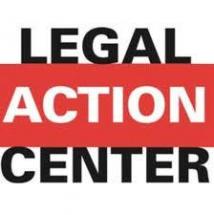Survey: Public strongly supports less criminalization of addiction

Addiction Law, History and Public Policy Articles
Addiction Treatment Articles
Harm Reduction
Drug War
Drug Policy Reform
Drug Prohibition
Overview
Originally Published: 01/29/2016
Post Date: 01/29/2016
Summary/Abstract
Comments from national political candidates supporting addiction treatment and prevention appear to reflect strong sentiment among the public, judging from results of a survey commissioned by the Legal Action Center.
The online survey of more than 1,000 respondents, conducted over a 10-day period in early November, found that 78% of Americans agreed with the statement “We need to treat drug and alcohol addiction more as a health problem and less as a criminal problem.” Sixty-three percent were in agreement with “We put too many nonviolent drug offenders in prison instead of treating their addiction.”
Content
The Legal Action Center is the only nonprofit organization dedicated to fighting for the rights of people with drug and alcohol histories, criminal records, and HIV/AIDS, is pleased to release this Roadmap for Promoting Health and Justice: A Smarter, More Effective National Drug and Alcohol Policy. The Roadmap provides a comprehensive and detailed set of recommendations for improving our national drug and alcohol policies to improve health and public safety and save lives and resources. As we move into the 2016 election season, we hope this Roadmap will guide policymakers, thought leaders and campaigns in their decision-making and discussion of these issues.
In 2008, after consultation with leading stakeholders, Legal Action Center released theRoadmap for Smarter and More Effective Alcohol and Drug Policies. A number of the 2008 Roadmap’s major recommendations have become the law of the land. Our lead recommendation – inclusion of good coverage of substance use services in health care reform – was mandated in the Affordable Care Act. Our recommendation that government and the private sector roll back laws and practices that discriminate against people in recovery from addiction was included for the first time in the President’s 2012 National Drug Control Strategy. The federal government and many states have taken important steps to reduce discrimination in employment, housing and higher education.
As a result of these historic reforms and earlier breakthroughs like passage of the Wellstone Domenici Mental Health Parity and Addiction Equity Act in 2008, the United States is poised to prevent and treat substance use problems and promote recovery much more effectively than ever before. We now have the best opportunity we will ever have to prevent young people from beginning unhealthy substance use, to make a major dent in the nearly 90 percent treatment gap between the 21.5 million Americans who need care and the 2.3 million who actually receive it, and to end discrimination against those who have overcome or still suffer from this terrible disease.
Strong partnerships with Presidents, Congress and states were integral to winning these victories, and continued bipartisan support will be key to further progress. It is exciting to see that in state after state, and in our nation’s capital, there is constructive, bipartisan work on these issues. The tremendous need for reform, driven especially by the devastation of the heroin/opioid epidemic and other drug and alcohol addiction, alongside huge opportunities for improvement, have brought concerned Americans from many walks of life into the conversation. Improving our nation’s drug and alcohol policies will make our communities healthier, our families stronger, and our neighborhoods safer, and lift up people who were previously marginalized. This Roadmap will advance two major goals:
- Provide the full range of proven prevention, treatment, and recovery services to 1 million more Americans over the next five years.
- Eliminate or modify the thousands of criminal record barriers that fall disproportionately on people with substance use disorders.
We look forward with great excitement to working with families, advocates, policymakers, service providers and other concerned Americans to greatly expand addiction prevention, treatment and recovery in the coming year





